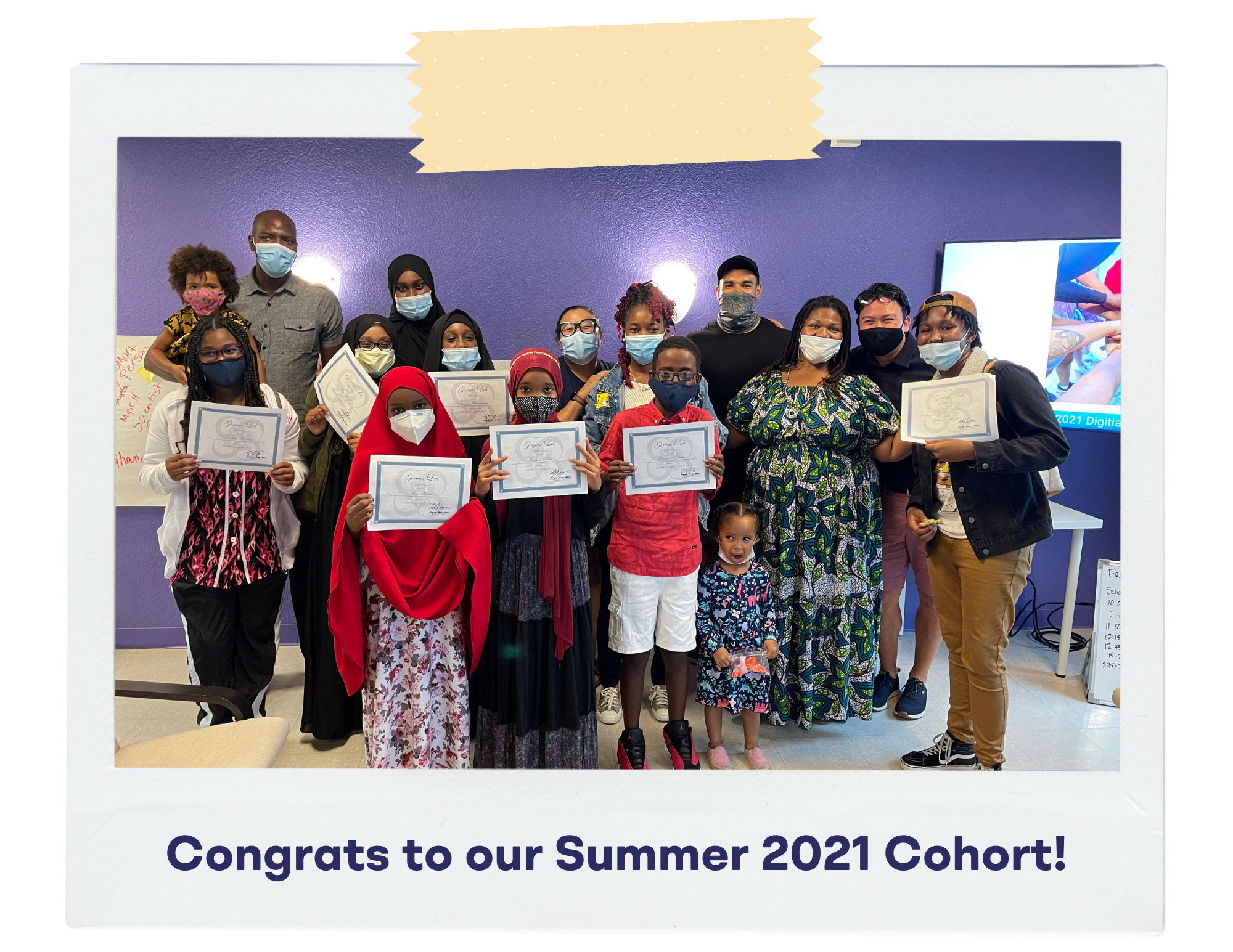This summer Genius Labs @GMCC Digital Café came to life. Over two weeks, a group of middle school BIPOC youth came together to engage and develop STEAM (science technology, engineering, arts, and mathematics) skills through challenge-based, design-centered learning studio experiences. In addition to skill building, integral to Digital Café are learning experiences that develop the whole person, including social and emotional learning, physical wellness, and career/vocational mentorship.
Our Philosophy:
At the core of Digital Café is the belief that all students have the capacity for GENIUS when given intentionally-designed resources, opportunities, and access. This belief is ground in research on multiple intelligences, studio learning, and social and emotional learning that supports youth development through a multifaceted approach.

Summer Pilot Program:
Through a learning-centered design process, a team comprised of experienced educators, mental health professionals, and GMCC staff and contract partners, developed the following essential components that are the Digital Café experience:
1. Community-Building Routines – Learning sessions begin with youth and guides gathering to share messages, connect socially, reflect on famous quotes, and activate their minds and bodies through community-building activities.
2. Genius Learning Seminars – Through a combination of direct instruction through various media (audio, video, articles, internet, etc.), group discussion, and individual reflection, students explore the concept of “genius” from a variety of lenses. Youth examine historically important geniuses, characteristics and habits of geniuses, genius growth mindset, multiple types of genius/intelligence, and other related topics.
3. Skill-Building Sessions – Youth develop technical skills that support challenge-based learning projects guided through tutorials, practice activities, small group instruction, and guided discussion. Examples explored during the pilot included: rapid prototyping (Five Chairs Challenge), brainstorming techniques (examples), coding concepts (using Micro:Bit), graphic design principles (using Canva), and effective storytelling (Ethos, Pathos, Logos).
4. Studio Time – During a large proportion of the program time, youth are introduced to and work independently on challenge-based learning projects in which they develop solutions to real-world problems. During our pilot, youth were given two challenges: (1) to produce an informative poster about a historical genius, and (2) to create a prototype device that supports “genius” (using a pocket-sized computer). Future challenges include developing an infographic about genius (using data visualization skills), creating a genius virtual experience (using VR tools), and creating 3D objects that symbolize genius (using CAD and 3D printing). Studio time culminates by presenting both unfinished and finished work in private and public settings. During the pilot, youth presented projects during a family open house event.
5. Social, Emotional, and Physical Wellness – Throughout the programming, youth have opportunities for social and emotional learning (SEL) and promoting physical wellness. SEL topics include: sources of stress and how to healthfully handle it, historical and personal trauma, mind-body connections, and restorative circles. Physical wellness activities include: free play, functional exercise, sports, and
nutrition tracking.
6. Career/Vocational Mentorship – Community members were invited to share their personal stories of how they found and developed their GENIUS in a question-and-answer panel format. During the pilot, panelists included two Black, female entrepreneurs and two Muslim, female design professionals.
Conclusion:
Our summer pilot was successful in designing a learner-centered environment in which youth developed their technological, social, emotional, and physical abilities as they explored GENIUS both within and outside of themselves. At an exhibition open house event following the end of the pilot, youth proudly and excitedly presented their work and shared their genius with their families.
In preparation for future cohorts, the design team continues to develop and improve the Digital Café framework and its implementation through Genius Labs @GMCC.



Recent Comments